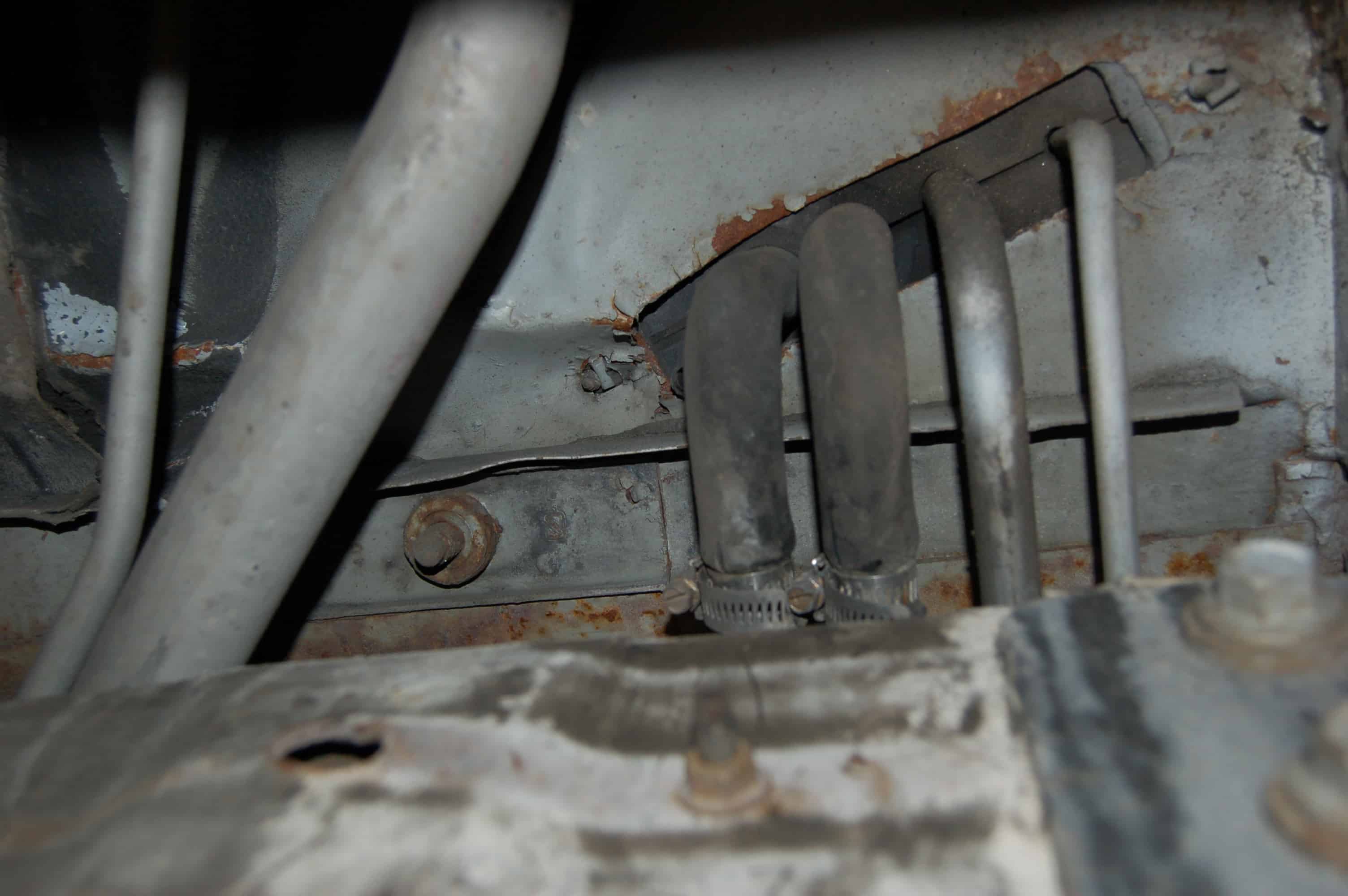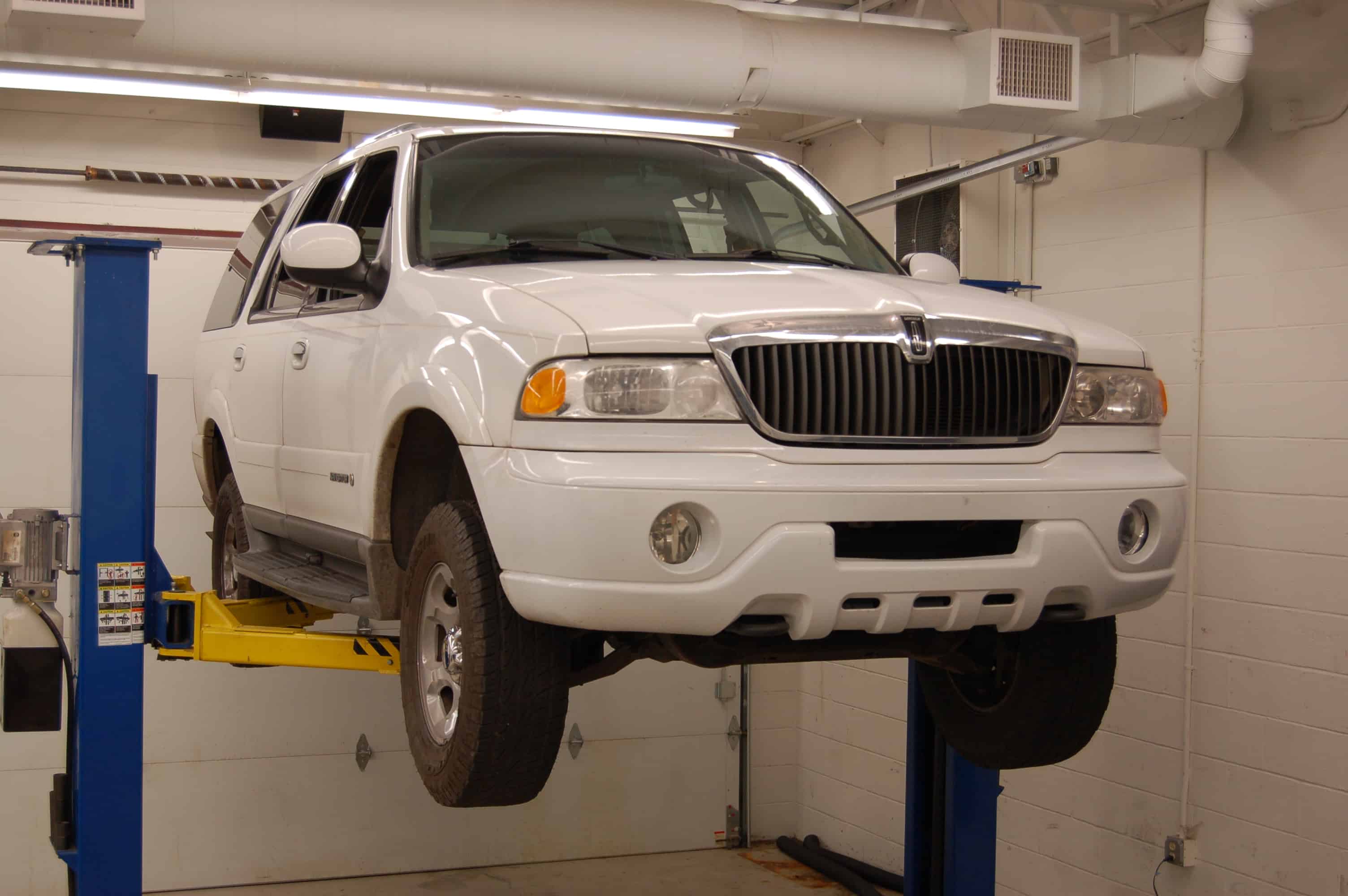Rotten heater clamps
By Steve Schaeber, MACS Technical Editor
Owners of 1998-2002 Ford U Platform SUVs (Sport Utility Vehicles, such as the Lincoln Navigator / Ford Expedition) may notice coolant leaking from around the left rear corner of the vehicle. The cause may be similar to what we found on this 2001 Navigator: rotten heater hose clamps.
Hose clamps do go bad, but they’re not exactly a super high failure rate item. Concerns are usually associated with loosening from the cyclical heating and cooling of normal engine warm up and cool down, as well as seasonal changes in ambient conditions. With worm gear types, a simple retightening of the clamp may be all it takes to solve an issue. Other clamps are the non adjustable, spring loaded type, and generally do a pretty good job of dealing with these changes. But some damage might be unavoidable. In certain parts of the country, culprits could include the brine solution used to pre-treat winter roads or the salt / sand mix used to melt snow and ice. In this case, we think it’s a combination of brine, age and water (ice & snow) sitting atop the clamps for long periods of time that finally rotted them out.

The A/C and heater lines for the rear HVAC unit travel along the underbody, then make a 90° turn up into the vehicle.
The heater pipes carrying engine coolant to and from the rear heater core on these vehicles are made of aluminum, and the 90° connecting hoses are rubber. Making the repair is pretty straight forward, although it’s not exactly an easy job to do. There’s not much room to get your tools in there to remove the old clamps, but once they’re off things go pretty smoothly. It’s important to remember that cleaning the pipes and hoses, along with removing any rust, dirt or scale that may build up on the sealing surfaces, can help ensure a snug fit.
Have you seen one of these vehicles come through your shop? Do you know of a similar situation where resting water causes damage to heater pipes, A/C lines or other components? Share your story with MACS, and it may end up here on our WordPress BLOG! Visit our website www.macsw.org or send an e-mail to steve@macsw.org for more information.
Note: Many thanks to MACS member Chris Tyson, fleet manager at R&S General Contractors in Bristol, PA, for sharing this story with us!

